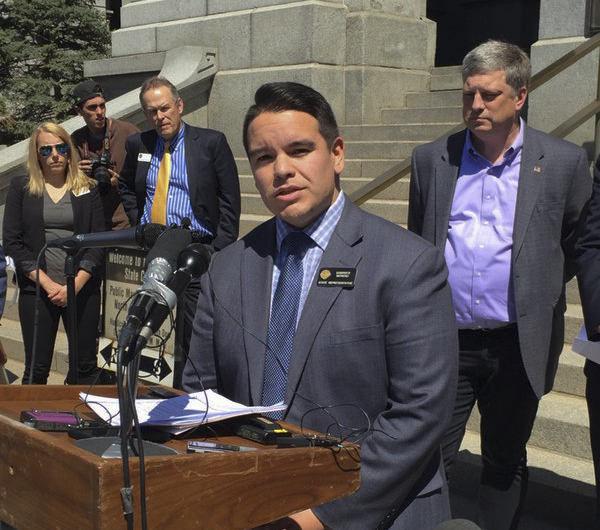
State Sen. Dominick Moreno, vice chair of the legislature's powerful budget committee, is getting behind the Democratic effort to secure paid family leave for workers in Colorado.
The Commerce City lawmaker confirmed this week that he has agreed to co-sponsor the bill, not long after two of his fellow Democrats withdrew their own names from it. State Sen. Angela Williams and state Rep. Monica Duran said that the current proposal wouldn’t do enough to serve low-income workers and people of color.
Moreno’s endorsement could shore up some confidence in the bill after the shakeup.
“I signed on because of the urgent need to establish paid family and medical leave in Colorado,” he wrote in a text message. “There are people in every community right now who have to choose between their job and caring for themselves or a loved one. We need to get it done this year.”
The other remaining sponsors — state Rep. Matt Gray and state Sen. Faith Winter — are still working with Moreno on a draft for introduction, which could drop in the next few weeks.
Still, the bill faces a tough road ahead. While Democrats and their allied groups generally agree on the need to ensure paid leave for Colorado workers, they still are at odds over questions like whether seasonal workers should be covered, and the length of time that workers must be at a job before they qualify for paid benefits.
There's also a much larger philosophical question: whether the benefit should be managed by the government or the private sector. The sponsors originally intended to create a large public program that would pay workers’ time-off benefits with money collected from fees on their paychecks, an option that was studied and recommended by a state-sponsored task force.
Gov. Jared Polis and some other Democrats signaled they wouldn't support that approach, so the sponsors shifted to a private mandate. Companies could instead buy private insurance from a regulated marketplace to cover employees’ time-off paychecks.
One recent proposal would initially require 8 weeks of paid time off for workers at companies with 20 or more employees, with the idea that the mandate would expand in coming years to offer more covered time off and include smaller companies.








